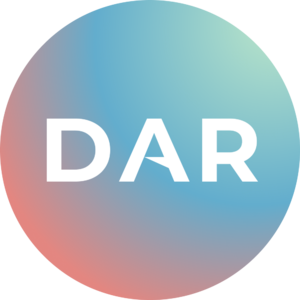DAR

DAR is a utility token created to implement a Bounty program for DecimalChain.
Bounty is a program that rewards users for completing certain tasks. In a sense, this is similar to a barter exchange: the company pays a reward, and its recipient performs simple tasks in return.
History of DAR creation
DecimalChain decided to use the marketing budget in this way: to create a functional token in DecimalChain and pay its users for activity, likes, reposts, reviews, videos, articles, attending webinars, winning quizzes and sweepstakes.
It is also a good example of using the Decimal ecosystem and a ready-made case of tokenization of the loyalty system, with which any entrepreneur will be able to increase audience engagement in his product or service, increase reach, attract loyal customers and brand ambassadors.
Technical parameters of DAR
When creating a token, you need to fill in six fields:
- token name;
- short name (ticker);
- initial issue (how many coins will you have on your balance after creation);
- initial reserve in DEL;
- maximum issue (how many of your coins will be issued in total);
- a constant reserve ratio (the percentage of providing your coin with the base DEL token).
A marketing budget of 4,500,000 rubles (300,000 DEL) was spent on the creation of the DAR token.
- DC Bounty (DecimalChain Bounty).
- DAR.
- The original release was set to 15,000,000 DAR.
- The initial reserve was set at 100,000 DEL.
- The maximum issue is unlimited. Since the issue of coins must necessarily be secured by DEL, it makes no sense to limit it. Because in the DecimalChain system there is no opportunity to create an unsecured coin just like that.
- The Constant Redundancy Ratio (CRR) was set at 10%. This minimum possible percentage of CRR will allow the coin to change in price, thereby adding value to the token due to its volatility. In this case, the moment of the “economic game” with the community was also taken into account, so it became necessary to create a system validator DCBounty — as a liquidity provider for the DAR token.
As a result, 100,000 DEL, or 1,500,000 rubles, was spent to create the DAR token itself, more precisely, on its security reserve. The rest of the budget — 200,000 DEL (3,000,000 rubles) — went to the validator's stake. A corresponding fee was paid for the three-letter ticker (DAR).
DCBounty Validator
Since users will receive DAR as a reward for their activity, it is completely logical that they will want to feel the value of their work in rubles or bitcoins. Therefore, after receiving DAR, most often the user exchanges it for DEL, reducing the reserve and, accordingly, the cost of the DAR token. If you close your eyes to this, then in the end it will be unprofitable for users to do anything for a penny.
Therefore, a DCBounty validator was created with a 200,000 DEL steak and a 100% commission, so that all coins generated by the validator would go to DAR, thereby maintaining and even increasing the value of the Bounty token. Thus, it will always be beneficial for users and customers to perform marketing tasks for DAR, and the marketing department will always be able to predict the amount of DAR available for distribution (approximately the same amount will be sold by users) in order to balance the cost of the token.
Additionally, an algorithm was written according to which the DCBounty validator buys DAR automatically every 24 hours.
Alternative solutions
It is not necessary to raise your validator if you have a limited budget and a small number of clients. You can maintain the value of your token as follows: create an “inviolable” stake in DEL and delegate it to a reliable validator with a small fee. Spend all generated funds on buying off your token.